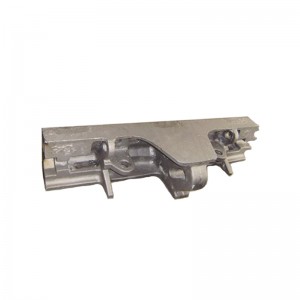Nov . 28, 2024 01:16 Back to list
Durable Cast Iron Tubing for Various Industrial Applications and Projects
Understanding Cast Iron Tubes Properties, Applications, and Benefits
Cast iron has long been a favored material in various engineering and architectural applications due to its unique properties and versatility. Among the many forms in which cast iron is used, cast iron tubes stand out for their durability, strength, and resistance to corrosion, making them an ideal choice for numerous industries. This article explores the characteristics of cast iron tubes, their applications, and the benefits they offer.
Properties of Cast Iron Tubes
Cast iron is an iron-carbon alloy that typically contains 2-4% carbon, along with other elements such as silicon, manganese, and sulfur. This composition gives cast iron its characteristic hardness and brittleness. Cast iron tubes are known for several key properties
1. High Durability Cast iron tubes are exceptionally durable and can withstand high pressure and temperature, making them suitable for heavy-duty applications.
2. Corrosion Resistance The inherent properties of cast iron allow it to resist rust and corrosion, especially when treated with protective coatings. This makes cast iron tubes an excellent choice for outdoor or industrial environments where moisture is present.
3. Excellent Casting Characteristics Cast iron flows well in its molten state, enabling the production of complex shapes and designs. This is particularly advantageous in construction and automotive applications where specific dimensions are required.
4. Good Vibration Damping Cast iron’s density provides excellent vibration damping capabilities. This is particularly beneficial in applications where reducing noise and vibration is critical, such as machinery and piping systems.
Applications of Cast Iron Tubes
Due to their unique properties, cast iron tubes find a wide range of applications across various sectors
1. Plumbing and Drainage Cast iron pipes are widely used in plumbing systems due to their strength and durability. They can handle both sewage and stormwater, effectively managing waste in urban infrastructure.
cast iron tube

2. Industrial Equipment Many industrial applications utilize cast iron tubes for manufacturing machinery and equipment. Their ability to withstand heavy loads and resist wear makes them ideal for use in environments such as factories and plants.
3. Automotive Sector Cast iron is often used in engine components, exhaust systems, and chassis parts due to its robustness and ability to endure high temperatures. Cast iron tubes can be used to create exhaust manifolds and other structural components.
4. Architectural Features In architecture, cast iron tubes are utilized in constructing columns, railings, and other decorative elements, combining functionality with aesthetic appeal. Their ability to be molded into intricate designs allows for creative expressions in urban environments.
5. Heat Exchangers In HVAC systems, cast iron tubes are used in heat exchangers due to their thermal conductivity and resistance to high temperatures.
Benefits of Using Cast Iron Tubes
Choosing cast iron tubes over other materials comes with several benefits
1. Cost-Effectiveness Despite being more expensive initially compared to some alternatives, cast iron tubes offer long-term savings due to their durability and low maintenance requirements.
2. Longevity Cast iron tubes can last for decades, significantly reducing the need for frequent replacements and repairs.
3. Versatility The adaptability of cast iron allows it to be used in various environments, whether for residential plumbing or industrial applications.
4. Sustainability Cast iron is recyclable, making it a more sustainable option compared to some plastics or composite materials. The ability to repurpose old cast iron products contributes to environmental conservation efforts.
In conclusion, cast iron tubes are a vital component in modern engineering and construction, offering exceptional strength, durability, and versatility. Their extensive applications across multiple industries underscore their importance, making them an essential choice for engineers and designers looking for reliable materials. As industries continue to evolve, the relevance of cast iron tubes is likely to grow, affirming their place as a staple in manufacturing and infrastructure development.
-
Durable Cast Steel Concrete Pipe Mold Bottom Rings & Base Trays
NewsAug.23,2025
-
Centrifugally Cast Iron Water Main Pipe for Reliable Mains
NewsAug.22,2025
-
Durable Centrifugally Cast Iron Water Main Pipe
NewsAug.11,2025
-
Centrifugally Cast Iron Water Main Pipes for Reliability
NewsAug.10,2025
-
High-Quality Centrifugally Cast Iron Water Main Pipes
NewsAug.09,2025
-
Durable Cast Iron Water Main Pipe & Drainage Solutions
NewsAug.08,2025


